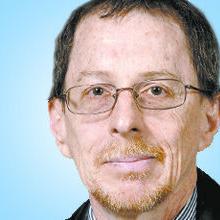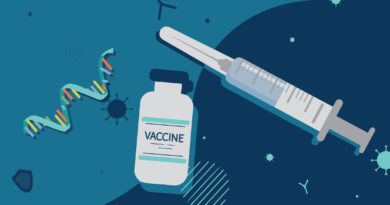Kelly Hawes column: COVID disinformation continues to spread

I got a note from a woman defending vaccine critic Michael Yeadon.
She was responding to a column I wrote about a year into the pandemic.
“Your credibility is ZERO,” she said. “Seriously, do some proper investigative journalism because you’re actually the disinformation and fake news.”
Yeadon, you might recall, had insisted the COVID-19 vaccines were part of an effort to depopulate the world. He predicted that many who took the so-called “jab” would die quickly and the rest would hang on for an average of two years.
I noted in my response that I had taken not only that first shot but the recommended boosters.
“I’m still here,” I wrote.
This made no difference to the skeptic. She had been sucked in by all of the disinformation and misinformation surrounding the vaccines. She even mentioned “Died Suddenly,” a so-called “documentary” I’ve written about before.
The film was the subject of a fact-check by the News Literacy Project’s Rumor Guard.
“The central thesis of ‘Died Suddenly’ is summed up in the opening minutes when a funeral director notes that searching for ‘died suddenly’ on Google yields numerous news articles about that topic,” the summary begins.
The film comes complete with spooky background music befitting its claim that all of these mysterious deaths had begun about the same time people started rolling up their sleeves.
“But that simply isn’t true,” the fact-check continues. “People have ‘died suddenly’ for centuries, and an increase in excess deaths overall in 2021 was the result of the coronavirus, not the vaccine.”
The organization says the film cherry-picks data, presents footage out of context and misinterprets scientific statements to support a false narrative.
There’s so much bad information out there it’s almost impossible for the real experts to keep up.
Steve Kirsch is a tech millionaire who takes pride in being labelled a “misinformation superspreader,” a term he’ll happily define.
“Our definition is it’s someone who’s basically pointing out the truth, and it just happens to disagree with the mainstream narrative,” he told Lisa Hagen of National Public Radio. “We’re known as misinformation spreaders because what they’re trying to do is they’re trying to control the narrative.”
“They” in this case are a network of pharmaceutical companies, government agencies, physicians and journalists he claims are behind a plot to poison the world for profit.
The scientific consensus, Hagen points out, is that COVID vaccines are safe and significantly reduce the chances of death or serious illness.
“While many Americans may share a distrust of pharmaceutical companies and healthcare systems,” she wrote, “there is no evidence of the kind of conspiracy alleged in these circles.”
Jeffrey Morris, a professor of biostatistics at the University of Pennsylvania, says guys like Kirsch have it wrong.
“They’re presuming that they have the entitlement that what they’re saying can be presumed to be true without them demonstrating rigorously that it’s true, and that it is the responsibility of society and the scientific community to prove them wrong,” he told Hagen.
That’s not the way science works, he said, but the folks making these claims don’t care.
My email correspondent said criticism comes with the territory.
“Whistle blowers ALWAYS get DISCREDITED, lose their jobs and get ridiculed by the media,” she wrote.
She had done her own research, she said, and she sent me a mountain of what she considered to be proof.
“Some of the website links for interviews may not work anymore,” she wrote, “as it’s already come out in the media that people are being silenced by the tech platforms, etc., anyone THEY DEEM to be spreading something that doesn’t FIT THEIR NARRATIVE.”
This is the perfect scam. The people peddling these far-out tales become folk heroes, and the experts trying to point out their lies are all part of a vast cover-up.
This article has been archived for your research. The original version from The Herald Bulletin can be found here.


